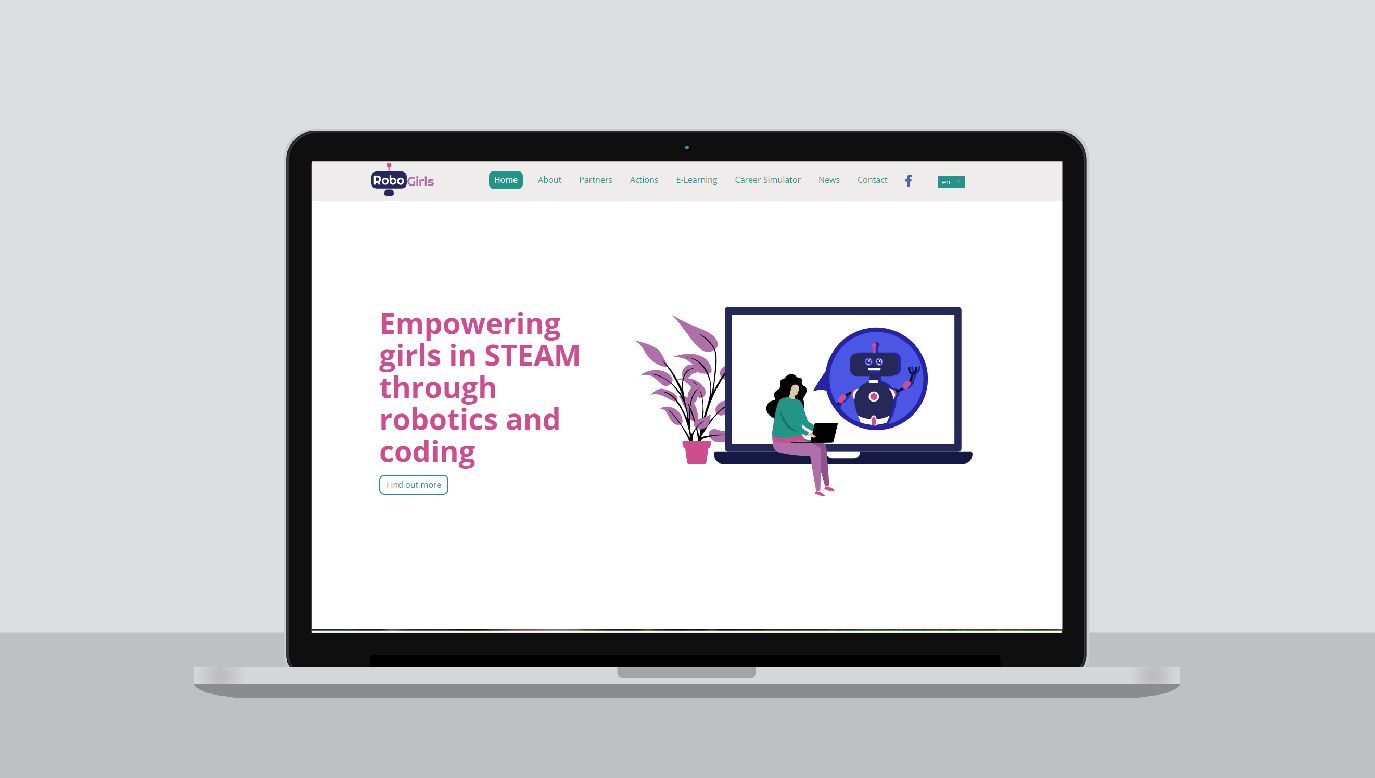Empowering girls in STEAM through robotics and coding


Name/Title: RoboGirls “Empowering Girls in STEAM through robotics and coding”
Executive Summary – Overview
The RoboGirls project developed a full-suite of innovative pedagogical tools aimed at building the capacity of educators to organise and implement experiential STEAM activities, using robotics and coding, to to actively engage girls in digital technologies and close the gender gap in the field. It focused on producing dynamic resources and gamified tools that were implemented in a series of blended learning trainings for teachers and students to get comfortable with using digital technologies.
Background – General
The women underrepresentation in STEAM has been a significant area of concern to educators and researchers over the past years. Even though the sector is rapidly growing, driving innovation and progress, a significant gender gap in all levels of its disciplines still persists. Robogirls has set out to embrace gender equity to help foster diversity in this field using innovative solutions to address skill gaps and promote future economic growth.
Following the elaborate research conducted by the consortium across Cyprus, Croatia, Greece, Spain and Ireland, the Robogirls team proposed a multifaceted approach to tackle the issue at its core through education. The project focused on developing innovative pedagogical material, dynamic resources, gamified tools, and a series of blended learning trainings to boost educators’ confidence and skills in introducing robotics in the classroom, as well as heightening girls’ interest in approaching STEAM subjects as a whole.
Solution – CARDET Focused
Robogirls developed an interactive MOOC platform offering educators seamless access to an integrated set of resources, tools and training materials to enable them to organise and implement innovative, experiential STEAM activities with the use of robotics and coding. Through the Robogirls’ platform, they can access and utilise a Comprehensive Guide for Educators comprised of learning materials, training resources and thematic activities they can apply to introduce robotics and coding in their lessons.
Furthermore, the Robogirls team created a Career Simulator containing 5 scenarios where the user assumes the role of a young female aspiring STEAM professional. Through storytelling, the persona engages in problem-solving activities, ultimately starting in the fields of Computing, Mathematics, Electrical Engineering, Environmental Engineering, Web Design and Development. The scenario-based approach and dynamic experience of the game offered users the opportunity for users to immerse themselves in the fields and get acquainted with the endless possibilities the digital era has to provide.
Results – Impact
The huge success of the RoboGirls project is largely defined by its accessible digital tools and innovative approach to challenging gender inequality within the field of robotics. Since it’s completion, the initiative has been recognised by the European Innovative Teaching Award 2023 for its outstanding results in providing accessible digital tools and innovative approach to empowering girls in STEM through robotics and coding, including
- Enhancing over 1300 girls with confidence and self-esteem towards STEAM, motivating them to consider a relevant career in the future.
- Building the capacity of over 60 teachers on STEAM Education using robotics and gender equality approaches.
- Developing innovative quality learning material and OERs for teachers to promote girls’ empowerment and engagement in digital technologies.
- Helping to develop complex ways of thinking, making the introduction of robotics in the classroom fun and kinaesthetic – despite previous experience expressed through focus groups.
Field
Countries covered
Implementation Period
Funding Agency
Website